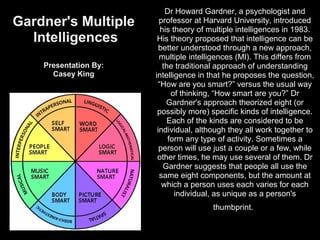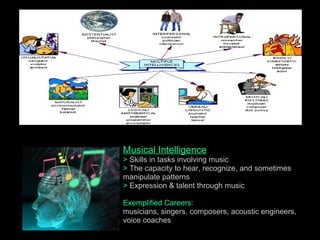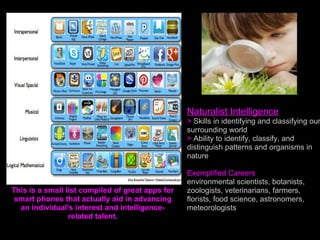The document discusses psychologist Howard Gardner's theory of multiple intelligences which proposes that intelligence is comprised of at least eight distinct abilities rather than a single general intelligence, and that each individual possesses unique combinations and levels of these intelligences; it provides examples of the eight intelligences - musical, bodily-kinesthetic, logical-mathematical, linguistic, spatial, interpersonal, intrapersonal, and naturalist - and potential career paths associated with each. The theory has been criticized for lacking objective measurement tools and not clearly distinguishing the proposed intelligences from general cognitive abilities or learning styles.









